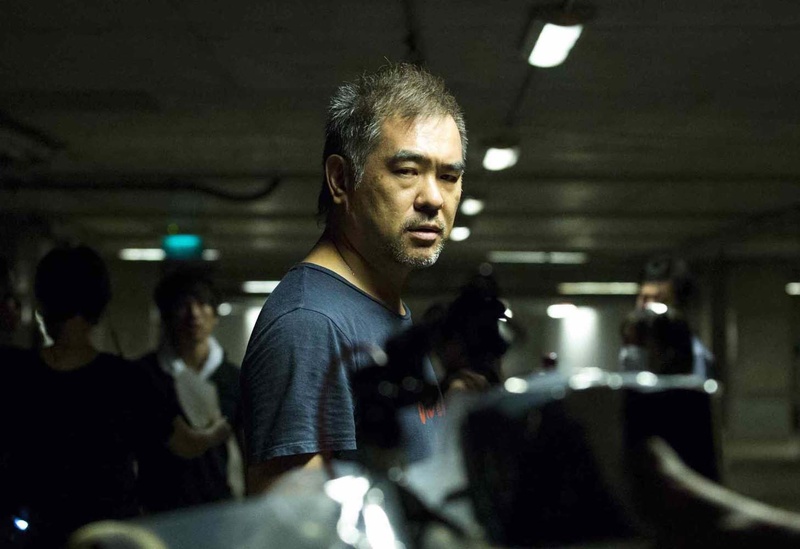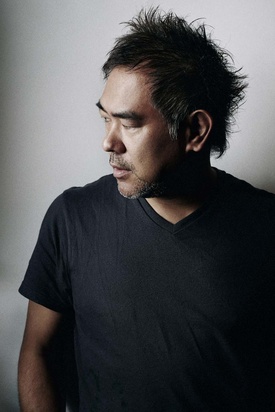Moved to Australia at age 17
After a successful career in Japan, film director Kitamura Ryuhei moved to Hollywood in 2007 and is currently involved in several projects. He says, "I grew up watching Hollywood movies." When he lost his mother when he was in elementary school, he moved from Osaka to Tokyo temporarily with his father for work. Instead of going to school, he went to Shibuya, where there was a movie theater. In the sixth grade, he declared to his friends that he wanted to be a film director. He was fascinated by boxing after watching "Rocky," and as he listened to the soundtrack, he also became obsessed with music. His favorite things have always been movies.
"When I was in my second year of high school, I thought about my future again and decided that becoming a film director was the only thing I could do. People around me said they were studying to get into a good university. But when I asked them why they were going to a good university, they said it was to get a good job. But what is a good job? Is becoming a stable salaryman a good job? I couldn't understand that way of thinking. I don't know if it's Japanese national character, but I felt like people were bound by rules that I didn't really understand."
Kitamura dropped out of high school at the age of 17 and studied filmmaking at a film school in Australia, the country where his favorite movie, "Mad Max," was shot. After returning to Japan, he took on a variety of jobs to "hone his human skills."
"Being a director is a special job. To make a movie, actors act, cameramen film, and each has their own specialty. But what is the director's job? It is to show a vision. And he must bring out the best in the actors and staff. To do that, I think it is important to increase one's experience as a person, to hone one's human skills. If a director doesn't have that, in other words, if he is unconvincing, people won't listen to him. At least, if I were the one being followed, I wouldn't listen."
He tried all sorts of jobs, from cleaning windows in high-rise buildings to working in a salmon factory before the New Year, and once he had saved up some money, he went on a trip. "I went to places no one had ever been to, like the Arctic and the island of Western Samoa." He gained experience and made an indie film. After "VERSUS" was well-received, he made his major debut with "Azumi," starring Aya Ueto. He later directed the blockbuster "Godzilla: Final Wars."
He says that being a film director suits him. "I get bored easily. But with movies, I can direct horror, action, and all kinds of different aspects of life. But it's hard to get out there in any job. You'll come up against a million things along the way that force you to give up. But that's the one thing I'm tenacious about. I'm persistent. I've never once thought about quitting directing."
Not Confined to Conventional Wisdom
It took 13 years from the age of 17 when he dropped out of high school to become a director until he was actually able to make a living as a director. "Until then, I was a nobody. Some people criticized my films harshly. But I wasn't fazed by it. Because those people who say that kind of thing don't look after me, do they? They have nothing to do with my life."
He says that he has hardly ever felt the negative atmosphere he felt in Japan in Hollywood. "People in Hollywood don't say negative, inappropriate things. But they often say positive, appropriate things like, 'It's great.' I don't think anyone really cares about anything."
In Japan, when he presents his vision as a director, it is not uncommon for producers and crew members to respond negatively, saying, "That's impossible. We don't have the budget or time." "Instead of doing exactly what's written in the script, we add our vision and expand it by doing it this way, thinking that it will be more interesting. In order to make a good movie, how do we use our brains and wisdom to realize the director's vision? That is what creativity is all about. However, there were many people who thought, "This has worked so far, so there's no need to take unnecessary risks," and I fought them many times. If you want to achieve something by doing something unconventional, you can't do it if you're trapped by the formulas and common sense of the past. It was a constant battle with the common sense of the Japanese film industry. But I think it was because I had many colleagues who overcame that that I was able to make a work that attracted attention in Hollywood." On the other hand, in Hollywood, when I tell them my idea, they say, "That's crazy," but the next day they present their own concrete measures. They don't say it's impossible from the beginning, but think about how to make it happen. I think that's the difference."
The trigger for him to move to Hollywood was his participation as a panelist at Comic-Con, a comic book convention in San Diego. Through a chance encounter with an acquaintance at the venue, he met actor Samuel Jackson. Jackson asked Kitamura various questions about his films "Versus" and "Azumi." He was strongly encouraged to "come here and do a film," and Kitamura decided to sign with the same management company as Jackson.
He notified his colleagues in Japan of his move to the US one year in advance and began preparations. Some people around him said, "You can just go back and forth between Japan and the US, why did you even move here?" and many people had negative opinions, such as, "You were entrusted with directing a big movie like Godzilla and could continue working steadily in the industry, so why would you give up that position and try to take on the challenge in Hollywood, where the results are uncertain?" "But I think life is a gamble in the end. Whether you turn right or left at the next corner determines whether you will meet someone who will change your life." Kitamura, who became a film director with the dream of Hollywood, crossed the ocean in 2007, believing that he would find his place around the corner.
© 2016 Keiko Fukuda







